Brendan Wright wants to capture a moment in their life on Troubadour, the newest record from Boston DIY powerhouse Tiberius. The farm-emo meets alt-country group writes a love letter to the sounds of 2010s indie rock on their label debut, mixing introspective folkier moments with brash, feedback-laden riffs. It is true Northeast basement DIY rock that floats between attitudes with Wright's conversational lyricism.
Tiberius will be instantly compared to the band Pinegrove, but to stop at this comparison would be disrespectful to Brendan and crew's mastery of their sound. There are so many acts playing sad, loud songs in rented basements adjacent to college campuses (I saw many during my time at college in Richmond, Virginia), but Troubadour seems to bottle up many of those sounds in a digestible way. Its angrier or denser moments do not alienate the audience, while its softer side approaches a bouncier, more melodic sound than many acts in the modern emo-adjacent realm can pull off.
Wright has deliberately built a band of friends around what was initially a solo effort. They emphasize the importance of relationships in life, commenting, "Troubadour was written in a short period of time where these relationships changed significantly, and it felt as if I underwent complete ego death" in a presser for the record. The output seems to be a mature step for the singer-songwriter, allowing for deeper, more honest output as the group expands beyond their native Massachusetts.
I spoke with Brendan Wright about how important the DIY scene was for their development, the maturity in songwriting on this record, and their relationship with touring. This conversation has been edited for clarity and length.
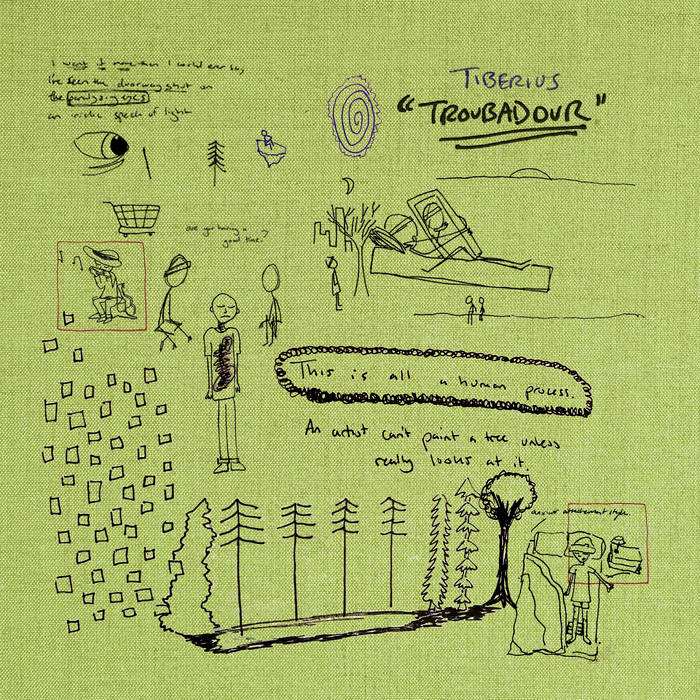
Sam Bradley: When did you realize that music was something you wanted to do? At what point did you start writing your own songs?
Brendan Wright: Once I started learning how to play simple chords and wrote some simple three-chord songs, I was like, "Man, I want to do this forever." I used to fantasize a lot about where that would take me, and I knew I always wanted music to be a part of my life, but I was never really sure how. There wasn't really a class where you could get a degree in being in a band.
Sam: What can you tell me about the Boston scene? It's not a place I have had the opportunity to spend much time in.
Brendan: Boston's scene is really cool because, as a smaller city, it doesn't have any sort of built-in musical infrastructure already. It's not necessarily considered an ‘arts city,’ at least not recently. I think the community here is people who want to do music and are really seeking it out. There is a need to put together these musical spaces because there is a lack of established ones. There are all of these universities and colleges in the Boston area with new young people coming in every year, who are interested in an arts scene and come to find that there kind of isn't a mainstream one. It kind of requires a little bit of extra effort. I think, as a result, there is actually a really great community here. That's not to say that it's necessarily gate-kept, because I don't think that's the case, but you do have to put a little bit more work into it to find your circle. DIY is a huge thing in Boston.
Sam: For your most recent run of shows, was that done in DIY spaces or more traditional venues?
Brendan: It was actually mostly traditional venues, but it felt booked in a DIY fashion. Once we get out of New England, booking stuff out is more through friends or people we know who have played in Boston before. On a run out to Chicago, we played New Hampshire, Boston, New York, and then Columbus, Ohio. We tried to find a venue out there that would take us, but we were having a lot of problems. It was on a Monday, and I guess the city of Columbus doesn't do a lot of music on Monday nights. Thankfully, I had some people from Columbus who had followed the band on Instagram, so I put it out there. Someone who had their own project was interested in helping us out, and we were able to put together a little living room show.
Sam: Does that allow for some more flexibility? I can imagine it might also get you into places you might not otherwise play.
Brendan: Yeah, it can be totally liberating.

Sam: I read a bit about how you initially envisioned this as a solo project. Does that still feel like the case? How has Tiberius become more of a collaborative thing between you and the other folks in the band?
Brendan: You know, I think it has definitely become a collaborative thing! I've been describing it to folks as a family or a collective. I'm always sort of steering the ship; if I didn't really want to do it, then it wouldn't happen. In the band right now, our bass player, KP, has been involved from the very beginning as a live bassist. Over time, he has become more of a part of the songwriting process. I used to bring my bandmates, or the people I was playing with live, these arrangements, and they would learn them to the best of their ability or make them their own. Now I'll come to the people I play with with more barebones stuff, and they'll be able to add more of their individuality and ideas. They really become our songs and our compositions together.
It's kind of a revolving door of people who are coming in and giving a little bit. They may not always be on stage with us at every show, but they are a part of the project.
Sam: Were there any growing pains getting to that point, or with letting go of some of the creative control?
Brendan: I think there can always be challenges with that. The biggest piece is that as I've gotten older and more experienced in the Tiberius world, I've learned to let go of certain things. I've also learned to be a bit of a better communicator. I think that's the biggest part, communication and trying to be as transparent as possible. Also, just being an advocate for myself. There were times when something was trending in a way I didn't think it should, but I would be kind of shy about it. After trying it, I sometimes grew more attached to it. It allowed me to develop a little more trust in the people I work with. But now, especially when I feel really strongly about a creative decision, I am better at letting that be known. Learning that was tough. I'm not a very intimidating person, I suppose. I'd say dominant wouldn't be the word that I would use to describe myself. I'm very passionate and enthusiastic, but I definitely feel like I have a more gentle personality.
I think Ben, who played on this record, and KP are both incredibly talented musicians and extremely proficient on their own instruments. It's great to go, "you guys are in charge of the bass or the drums," and have them be able to lay those things down and get a solid base for the song. Then I kind of have this really nice template where I go in and do most of the other instruments. Most of the guitars and all the vocals—mostly all of the production stuff like effects and the synths and all that. That's all me and I get to put my own vision on how it's mixed.
Going forward, as the band has become more consistent, I'm definitely interested in maybe doing some more live tracking. It would sound a bit more live if three or four of us went into a studio to record. Sometimes, to me, this record feels more like a layered composition as opposed to a band playing. Maybe that's just me, because I've been sitting with it for so long. I think I use the studio as an instrument a lot, where I'll be recording stuff and think, "Oh man, it would sound really cool if we added this effect here."
Sam: I do enjoy a lot of those layered moments and how they contrast with other sounds or melodies, but I see where you're coming from. I wanted to ask you as well about writing with dynamic contrast for this record, and how you approached that.
Brendan: I think my favorite writing tool is contrast, and I love when things are really loud or really quiet. I think particularly what strikes me most live is when bands can really be dynamic; when they establish that this volume is their ten and this is their one. I think that when bands are just too loud or just too much all the time, their ten kind of becomes their five, and it can get kind of boring. That's a philosophy I try to take into the studio as well, having too much going on all the time can get really boring.
Sam: Throughout the process of constructing the record, did it feel like a big maturing step for the band at all?
Brendan: That's a hard one. I think a lot of these songs came out pretty naturally. I think this was the first record we approached with a more concise and focused mindset. We recorded all of the drums in an actual studio, which was the first time I'd ever done that process. I really wanted to make this record one of the better records that I've done. Maybe at the time of the last record, we or I just weren't really ready for that. I think this one feels natural. For a lot of reasons, I feel pretty strange about the record. It's a vulnerable record about feelings that I don't really relate to much these days.
It's funny, like when you start working on a new project, you feel like that's where you're at as a musician, and everybody who engages with you from the other side only sees the thing that you worked on before that. It'll be nice to have this as a representative of where the project is at creatively and artistically.
Sam: I read something in that vein about how a lot of these lyrics have sort of a conversational, person-to-person structure. Could you touch on that and how that songwriting style helps keep things genuine?
Brendan: This is something with my personal feelings on songs that are really impactful to me. I feel like the most impactful songs and conversations are the ones that are in plain language. I was an English major, I love poetry, like that's something that I can totally live in. Convoluted imagery can be super beautiful. I just think there is also something impactful about just saying what you mean. It is vulnerable to say, "This is what I'm feeling," rather than finding a beautiful way to say it.
I did an album one time where I was trying to be very stream of consciousness, but kind of going through the part of your brain where you're having all these intrusive thoughts. I ended up saying a lot of things I didn't actually mean.
Sam: I'm sure it's common to get bogged down in that overly floral or heady writing style and then get too far away from your point. You're trying to make it more direct, just like you'd talk to any random person.
Brendan: Yeah, and I struggle with it a lot. I mean, I have some friends who are insanely beautiful lyricists. They can write in ways that are metaphorical and just paint beautiful pictures. When I try to do that, I think I complicate it for myself too much. I just try to keep things as conversational as possible and keep the sentiment. I think they can be applicable to a lot of people.
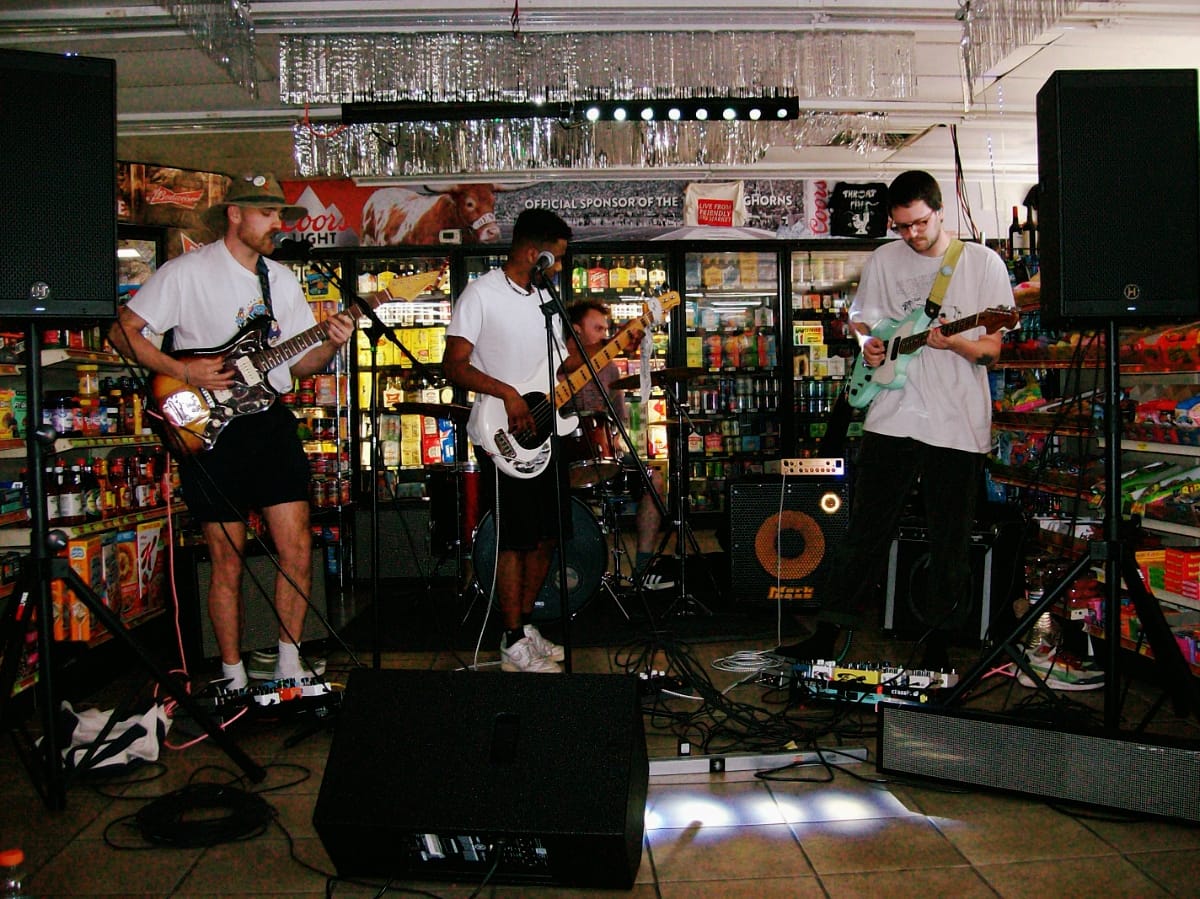
Sam: What is your relationship with touring and travel like?
Brendan: I really like it. I think it's always been a dream just to go out and play and to travel. I really didn't travel much out of the northeast until maybe two years ago. Since then, I've gone to several places in the country. On the last two tours I did, I got to go to Texas and Chicago, and I saw half the country just by driving. I think that booking tours can be such a headache at times. But I love the DIY ethos and the flexibility, like what we were talking about earlier, and the places that you end up that you would never end up. I ended up playing in a convenience store when we were in Austin, which was so cool. But sometimes, with the DIY ethos, there's a flakiness, a laziness, an unpredictability, from people who just don't have their stuff together. Sometimes I'm like, "Man, it would be so nice just to have like a booking agent or someone who could put together a tour for us," to find support, be able to reach out to these bands, and do more of the logistical stuff. It can be tough. My day job is working at a school, so I work my touring stuff around school breaks as much as I can.
I guess the other thing to say is there is no money in DIY touring. It feels like it's pretty damn hard to make money in any kind of touring unless you're really in that top 1% of acts. To build an audience, you really have to do it for the love of the game. If you're trying to sell a product, I feel like you're just going to be miserable the whole time. I, for one, love gas station food and sitting in the car for hours at a time, so I'm good!
Sam: Some folks do not have the road blood to handle that sort of thing.
Brendan: You've got to really be into it.
Sam: Is there anything you want people to take away from Troubadour?
Brendan: I think that people go through vulnerable times, and you know, it's all right to feel vulnerable in those moments. It's okay sometimes to feel like your whole world's falling apart. We all go through it, and it's a human experience, and I know I've been through it in the past. I feel like I went through it when making this record, and I know I'm going to go through it again.
I'm sure I've taken away some messages from records that weren't intended. There are some records from college that just remind me of friends I used to hang out with and what we used to talk about. When I listen to those records, I think about those times and those associations. It makes me feel warm inside. So if this record is the backdrop to any sort of part of someone's life, that would be crazy . . . that would be awesome.
Check out more like this:
 The TonearmDamien Joyce
The TonearmDamien Joyce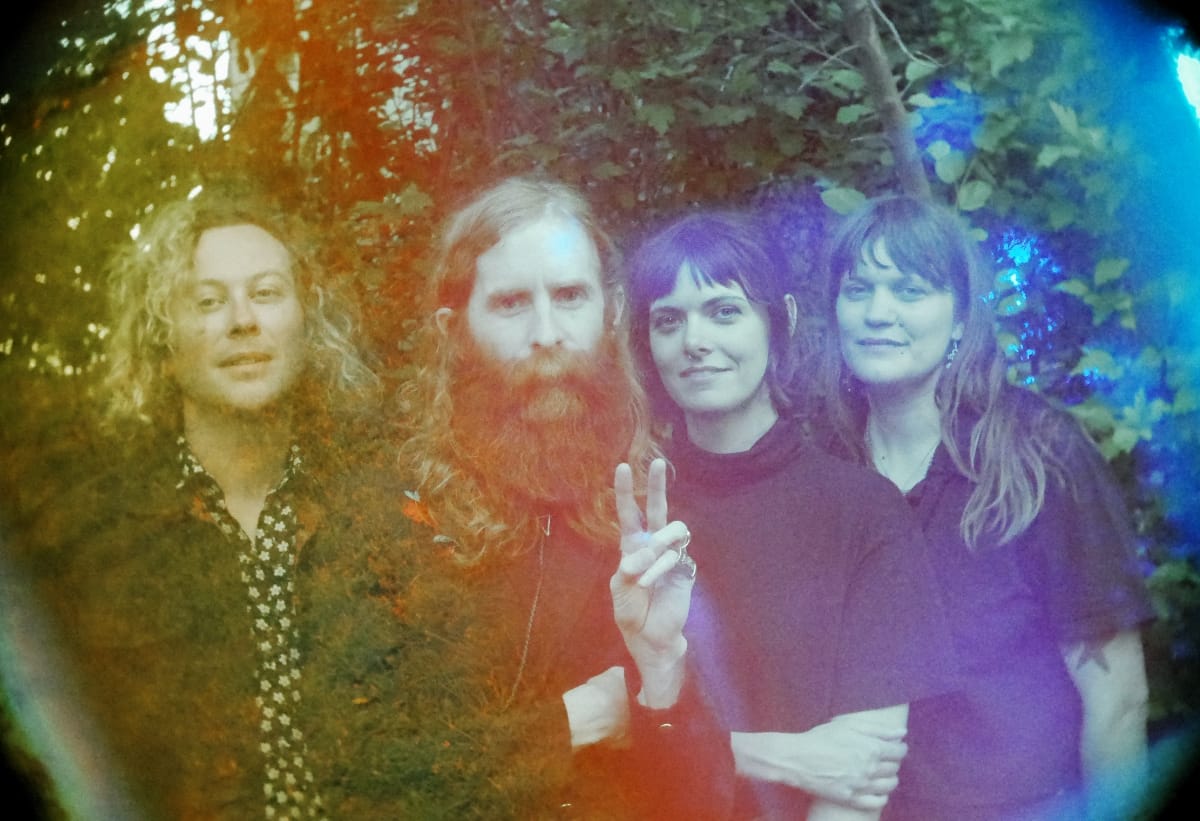
 The TonearmSam Bradley
The TonearmSam Bradley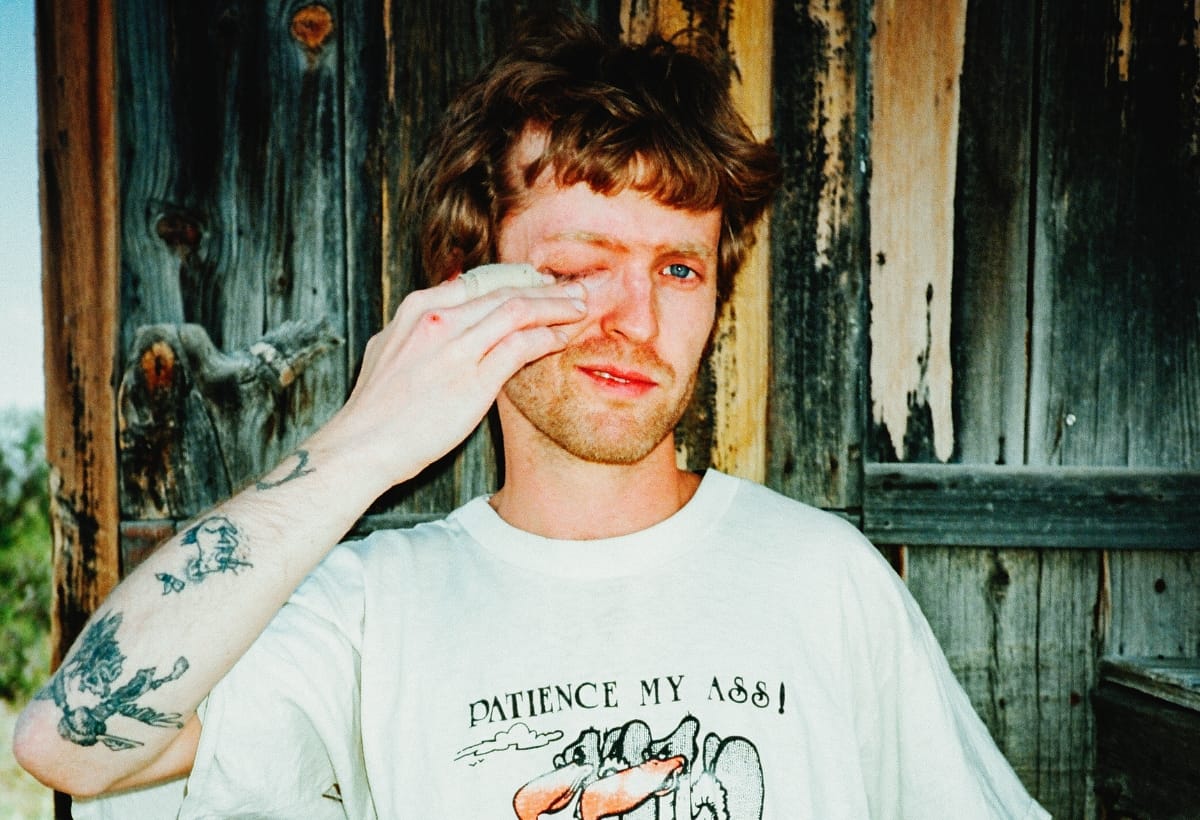


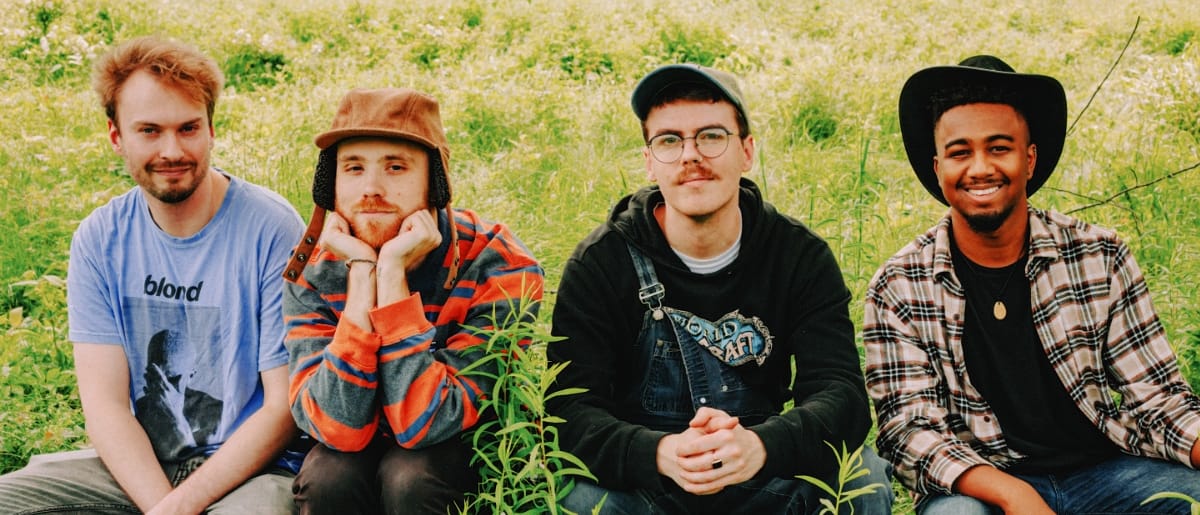

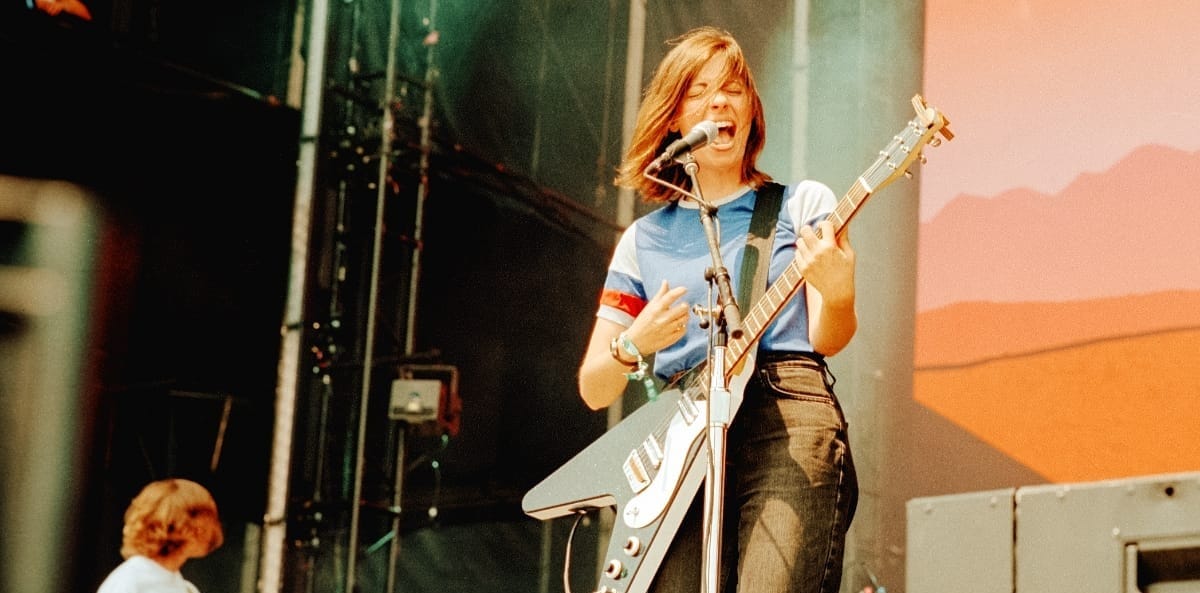
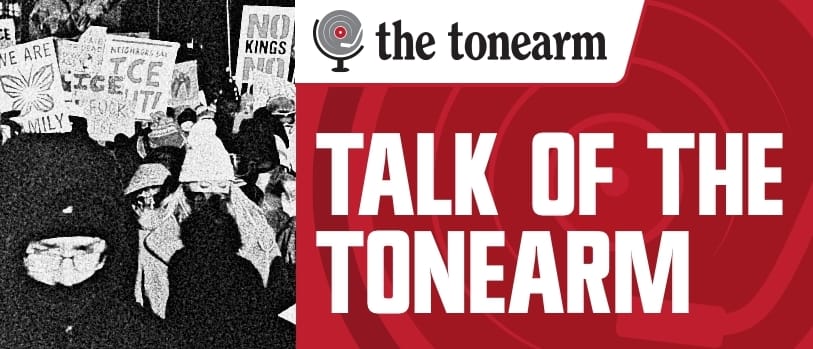
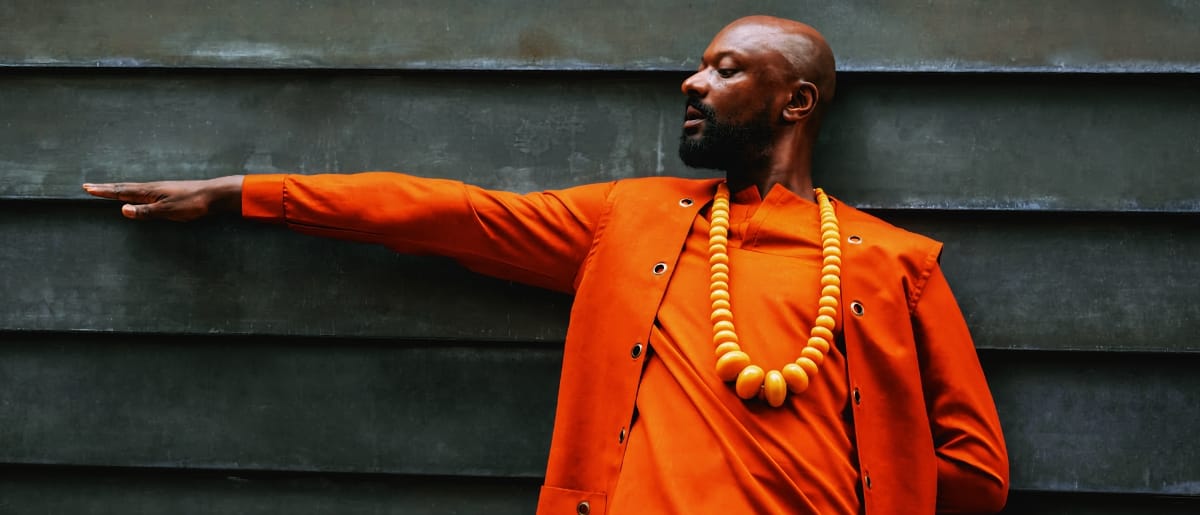
Comments